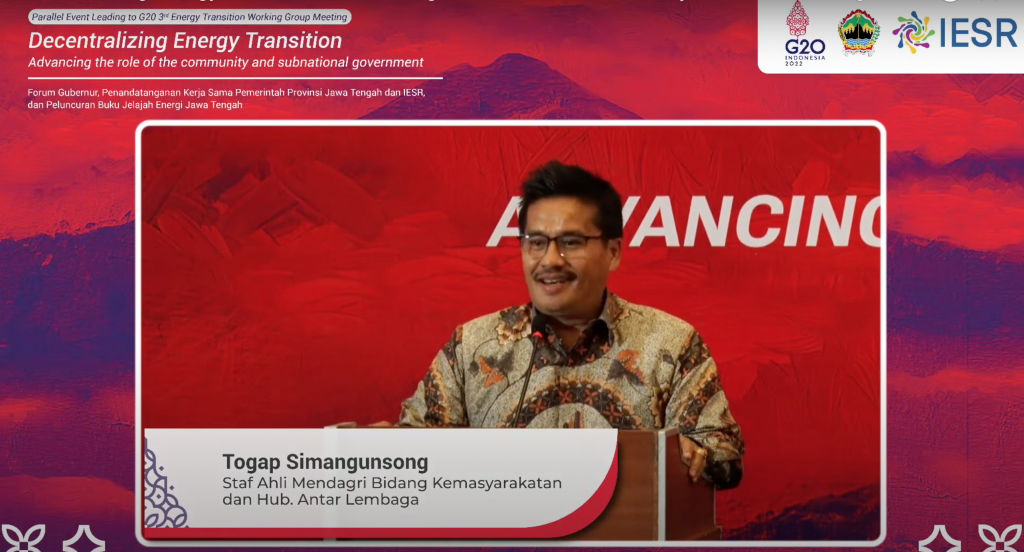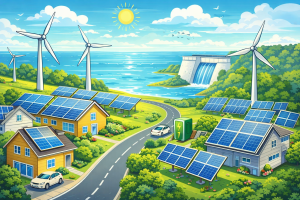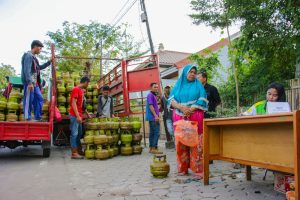
Nusa Dua, Bali – The government is currently drafting a presidential regulation (Perpres) that strengthens the authority of local governments both at the provincial and district/city levels, in the administration of government affairs in the field of energy, mineral resources, sub-sector of new and renewable energy. The Presidential Regulation will later regulate the support that local governments need to provide in achieving the target of the new renewable energy (NRE) mix.
“Through this (regulation) it is hoped that the regional government can provide support in efforts to achieve the target of the new renewable energy mix as an effort to reduce greenhouse gas emissions so that local government commitments are established in efforts to accelerate energy justice in accordance with their authority,” said Togap Simangunsong, Expert Staff to the Minister of Home Affairs for the Ministry of Home Affairs in a G20 side event and Energy Transition Working Group (ETWG) Meeting in Bali, Tuesday (30/8).
Chrisnawan Anditya, Head of Planning Bureau, Ministry of Energy and Mineral Resources (ESDM) said the utilisation of renewable energy potential would open up opportunities in building a green national economy and as an effort to recover the economy after the pandemic in accordance with the G20 Presidency’s theme, “Recover Together, Recover Stronger”.
“Each region has …(different) potentials for new and renewable energy (this) is a technical challenge, as well as a great opportunity for our energy system. This condition allows the sharing of energy …when the area experiences energy abundance or scarcity. In order for this to happen, an integrated electric power system (smart grid and super grid) is needed,” he said.
Strong leadership at the regional level will be able to mobilise the community to make the energy transition to mutual cooperation, said Fabby Tumiwa, Executive Director of IESR, adding that the initiative and leadership of the local government will be able to answer the problem of access and security of energy supply by utilising the abundant renewable energy potential in the area.
Based on an IESR study, the decarbonization of the energy system in Indonesia will cost USD 1.3 trillion by 2050, with an average investment requirement of USD 30-50 billion per year. This amount is 150%-200% of the current total investment in the entire energy sector.
“This investment need is not small and cannot be borne solely by the government and SOEs. But this large investment can be met if we take into account the potential of the contribution and innovation power of the community as well as the capabilities of local governments. Citizens’ contributions and innovations can mobilise funding from the government, local government and village governments, as well as funding from the private sector and non-governmental institutions,” said Tumiwa.
Bali is the first province in Indonesia to have a special governor regulation for clean energy and electric vehicles. In the Governor’s Regulation on Bali Clean Energy, the Governor of Bali encourages the use of renewable energy for various sectors, especially the use of rooftop solar power plants. This effort is carried out to realise the vision of low carbon development in Bali and concrete steps for sustainable tourism (sustainable tourism).
“Due to the pandemic, Bali’s tourism has stumbled, after the pandemic, Bali has started to rise. A number of efforts have been implemented, such as the governor’s regulation and circulars regarding the adoption of rooftop solar power plants. Actually, the main target is the tourism sector, but first we do a pilot in government (buildings),” explained Ida Ayu, Expert Staff to the Governor of Bali. (Hartatik)















